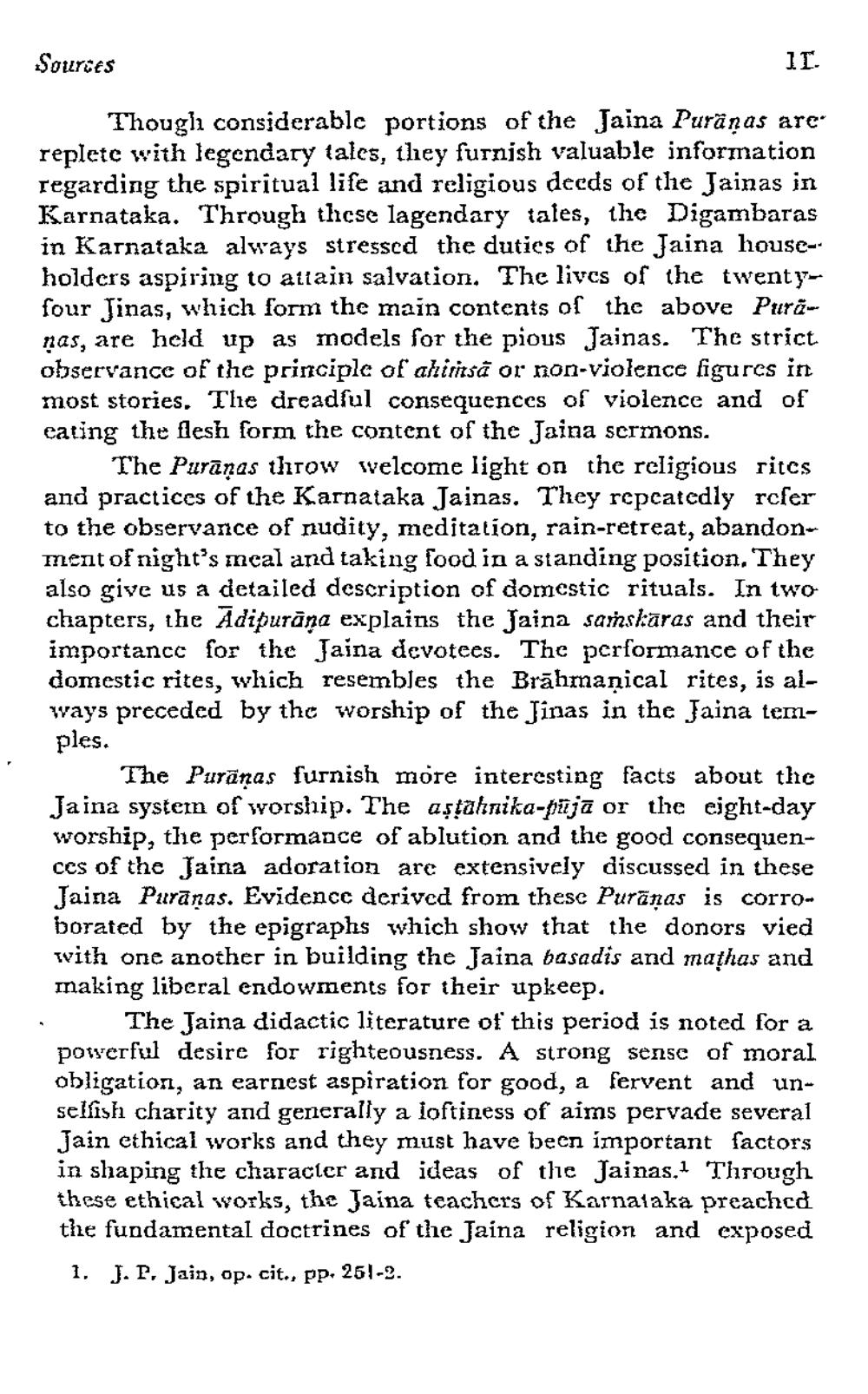________________
Sources
II.
Thoughi considerable portions of the Jaina Puranas are replete with legendary tales, they furnish valuable information regarding the spiritual life and religious decds of the Jainas in Karnataka. Through these lagendary tales, the Digambaras in Karnataka always stressed the duties of the Jaina householders aspiring to attain salvation. The lives of the twentyfour Jinas, which form the main contents of the above Puräņas, are held up as models for the pious Jainas. The strict observance of the principle of ahimsa or non-violence figures in most stories. The dreadful consequences of violence and of eating the flesh form the content of the Jaina sermons.
The Puranas throw welcome light on the religious ritcs and practices of the Karnataka Jainas. They repeatedly rcfer to the observance of nudity, meditation, rain-retreat, abandonment of night's mcal and taking food in a standing position. They also give us a detailed description of domestic rituals. In two chapters, the Adipurāņa explains the Jaina samskäras and their importance for the Jaina devotees. The performance of the domestic rites, which resembles the Brāhmaṇical rites, is always preceded by the worship of the Jinas in the Jaina temples.
The Puranas furnish more interesting facts about the Jaina system of worship. The aştahnika-pija or the eight-day worship, the performance of ablution and the good consequences of the Jaina adoration are extensively discussed in these Jaina Puranas. Evidence derived from thesc Puranas is corroborated by the epigraphs which show that the donors vied with one another in building the Jaina basadis and mathas and making liberal endowments for their upkeep.
The Jaina didactic literature of this period is noted for a powerful desire for righteousness. A strong sense of moral obligation, an earnest aspiration for good, a fervent and unsellish charity and generally a loftiness of aims pervade several Jain ethical works and they must have been important factors in shaping the character and ideas of the Jainas.1 Through these ethical works, the Jaina teachers of Karnataka preached the fundamental doctrines of the Jaina religion and exposed 1, J. P, Jain, op. cit., pp. 261-2.




